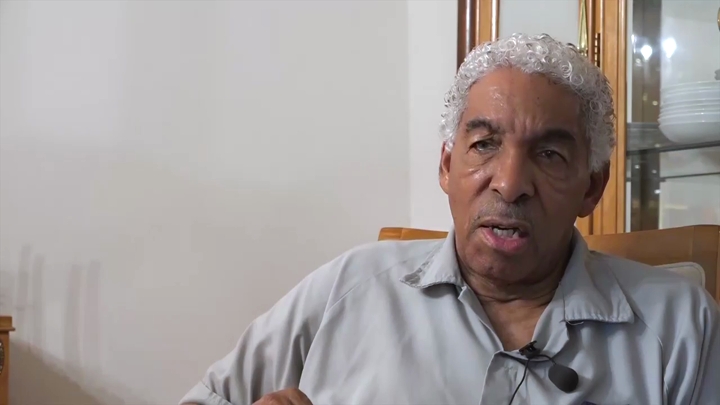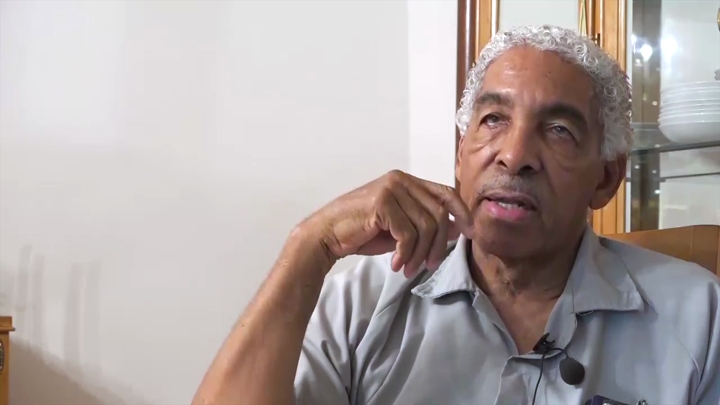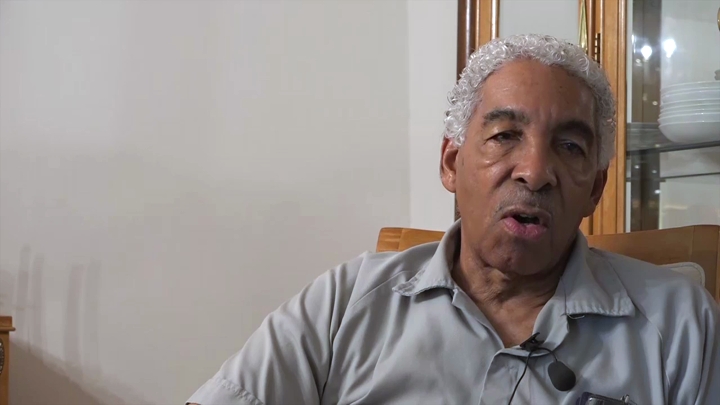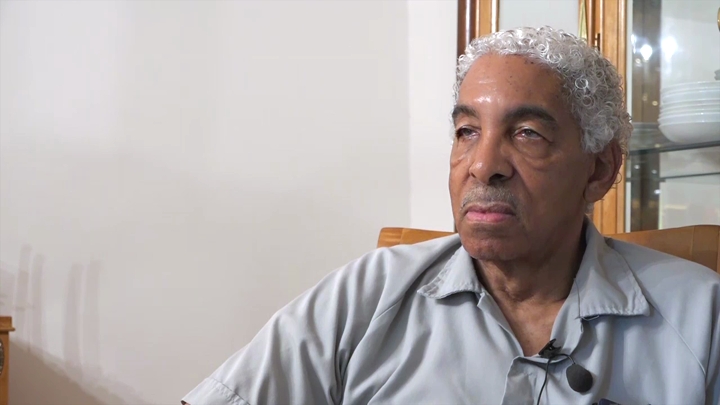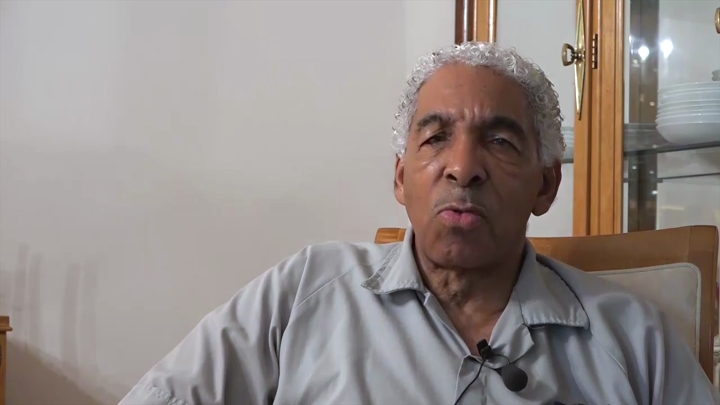Cross / Working within the System
sign up or sign in to add/edit transcript
Cross: You have to sometimes scheme and do things. The superintendent, he was so impressed with me when we had graduation. The senior glass, you have to call their names when they step through the curtain to get their diploma. So, my job was to call their names when they stepped through the curtain. So, I called all of the names—the middle and the end and they all the diploma and things. So, the superintendent came up to me and he said, “Where is your list?” I said, “List? For what?” He said, “To call the senior’s name.” I said, “I know them all. I can just call their names.” He looked at me and just shook his head. He said, “You know all these?” I said, “Yes. I know them all. First name. Middle name. Last name.” He said, “I’ve never seen that before. That you didn’t have a list.” I said, “When they stepped through the curtain. I knew their name, I just called it.” He was so impressed that I did that like that. Let me see, I was trying to think of something else that happened, but nothing never been fair. Like at my school, I might have the same enrollment as a white principal, but the white principal budget was bigger than mine and I’m wondering why is this happening, but it was happening, you know, you couldn’t do a whole lot about it. Interviewer: Did the relationship between the African-American community here in Lufkin and the school change after integration? Cross: No, it didn’t change. It did some, now, you know I had one teacher and she used to say to me, she’d say, “I’m on the way home and my husband’s going to barbecue some hamburgers tonight. Why don’t you and your wife come over?” We’d go over to her house, eat hamburgers, laugh, talk and socialize, but it won’t be too many whites that’s inviting blacks to come over and have a drink. You won’t see a lot of that. Never. But this one teacher and I’ve been in her house many a times. Eating, we just laughing and talking. Just having fun. Now my principal, Ed Casbin, that was at the high school. He’d invite me to his house to play—is it Forty-Nine or— Interviewer: Forty-two. Cross: Forty-two and it’s just like we play (inaudible.) It’s played like that and I caught on. I can play it, but when we playing cards, we’re going to play some (inaudible) but when we play dominos we going to count. I learned it at his house. He invited me over to socialize, but most of Lufkin whites, they’re not going to do that. They’re not going to socialize, and I think about all these Christians because everybody goes to church. That’s what I can’t understand, but that’s what happens. So, I just stay level headed.
| Interview | Interview with Herbert Cross |
| Subjects | Work › Discrimination at Work › Discrimination at Work: Race and Ethnicity |
| Geography › Geographic Disparities in Economic Growth or Decline | |
| Education › Secondary Education | |
| Education › Parent and Community Involvement in Education | |
| Education › Education and Integration | |
| Education › Teachers and Administrators | |
| Tags | Lufkin ISD |
| School Budget Disparity | |
| Caspin, Ed | |
| sign up or sign in to add/edit tags | |
| Interview date | 2016-06-20 |
| Interview source | CRBB Summer 2016 |
| Interviewees | Cross, Herbert |
| Interviewers | May, Meredith |
| Locations | Lufkin, TX |
| Duration | 00:03:55 |
| Citation | "Working within the System," from Herbert Cross oral history interview with Meredith May, June 20, 2016, Lufkin, TX, Civil Rights in Black and Brown Interview Database, https://crbb.tcu.edu/clips/2408/receiving-a-invite, accessed March 04, 2026 |


